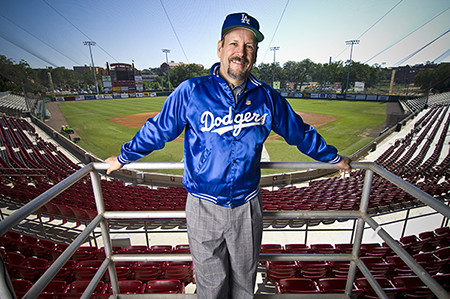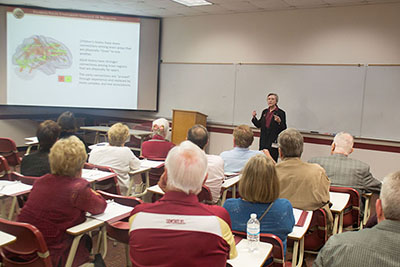Ken Brummel-Smith, founding chair of the College of Medicine’s Department of Geriatrics, and a tireless advocate for older adults and universal health insurance, is retiring. Soon.
“Ken has been instrumental in creating the infrastructure that has allowed for the development and implementation of a novel geriatric curriculum across all four years of training,” current Department of Geriatrics Chair Paul Katz said in making the announcement.
“Under his leadership, the Department of Geriatrics and its faculty have achieved national prominence. Ken is a superb clinician and educator and has been a powerful role model for the hundreds of trainees he has mentored since joining the faculty in 2003.”
Brummel-Smith, who stepped down as chair of the geriatrics department in 2015, isn’t leaving right away. His last day will be in June.
The College of Medicine will find an opportunity to celebrate Brummel-Smith’s contributions as his retirement date draws near. Meantime, his planned departure is fresh news for many, including the more than 1,000 College of Medicine alumni impacted by his teaching, and at least as many grateful patients impacted by his patient-focused care.
In his own words, here is why Brummel-Smith is ready for a change:
“A lot of people have asked why I decided to retire now and what I plan to do. I’m 67 and in great health, and still very active in my career. So it’s kind of natural to ask, ‘Why now?’
“Like everything in human life – it’s complex. One, one of my best friends (same age) retired four years ago and loves it. He’s still doing a lot to advance geriatrics through the American Geriatrics Society, but he’s in complete control of how he chooses to spend his time.
“Two, after 30 years in geriatrics I can’t tell you how often I heard the story of someone pushing themselves and then finally retiring, only to have some health problem begin shortly afterwards.
“There are so many things I want to do in my life ahead, I want to start them while I’m able. And finally, the demands of academics are mostly around time. Lots of things have to get done – teaching in a course, working on a grant, developing and conducting a clinical program. Not that much time for yourself. I’ve always believed that new challenges – getting scared – is a good way to maintain health. So I’m looking at things I’ve always wanted to do – learn Tai Chi, woodworking, take a Spanish immersion course in Panama, ride the length of the Blue Ridge Parkway. A venture into the unknown.
“I will keep my hand in medicine – I’ll remain as medical director of Trulieve, the medical cannabis dispensary. I’ll keep representing the AGS on the Forum on Aging, Disability and Independence at the National Academies of Science, Engineering and Medicine. I’ll remain involved in the service learning trips to Panama with the medical students. But I want to start learning more about, writing about, and advocating for improvements in two areas – the role of racism and bias in medicine and person-centered care.
“My time at FSU College of Medicine has been amazing. I’ve worked longer here than anyplace I worked before. I’m so proud of our mission and I hope that we will stay true to it. But retirement from a place like FSU is also about trust – trust that 14 years of students and faculty and staff that I have been fortunate to work with will keep the ideal of patient-centered care in their hearts. I’m confident they will.”


